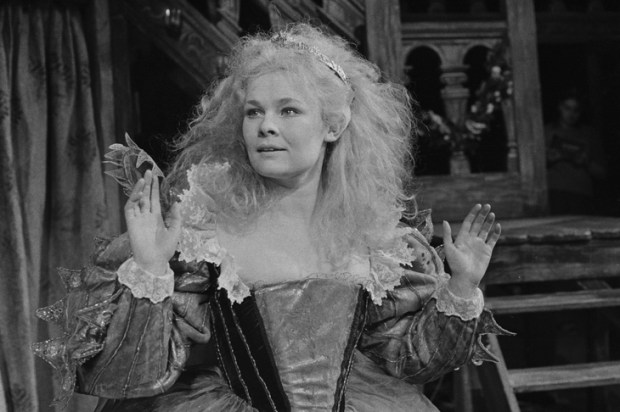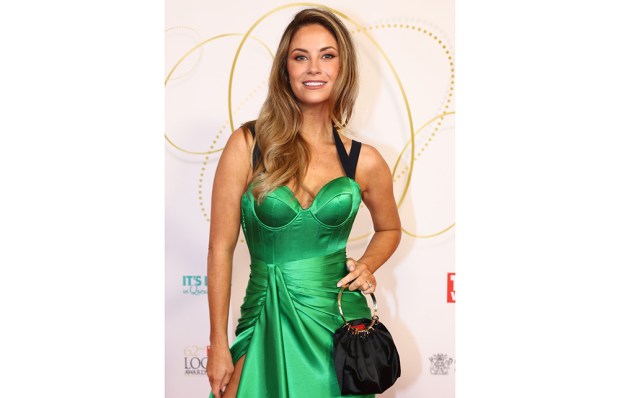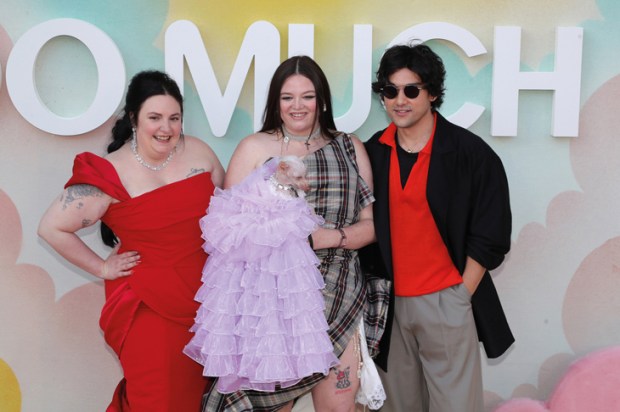There are a thousand ways of celebrating the Christmas holiday that are culture specific but have a universal appeal. You can see the Melbourne Symphony Orchestra perform Messiah and be stirred by the music Handel created with those mighty texts from Isaiah presenting the Christian and Jewish aspects of our culture as a continuum.
Or you can go, as we did, to Carols in the Cathedral performed by the Royal Melbourne Philharmonic conducted by Andrew Wailes in the majestic setting of St Paul’s Cathedral. This was a night of carols which presented them as integral to the whole musical tradition, everything from Vaughan Williams to Oh Come All Ye Faithful but with Bach rubbing shoulders with the city of Melbourne Highland Pipe Band performing Amazing Grace, The Little Drummer Boy and We wish you a Merry Christmas. This was accompanied by expert readings of St Luke’s account of the birth of Jesus by Roland Rocchiccioli as well as those uncanny prefigurations from the Book of Isaiah – in the King James Bible – which tallied with the deep traditionalism of the evening.
The Bible is central to the history of books. Michael Visontay’s Noble Fragments is all about the dismemberment of the Gutenberg Bible (the first printed edition of the text) and the way it became a glittering and enriching obsession for one of Visontay’s forebears. It is a riveting and constantly surprising story.
Books, you may think, are done and dusted but they continue to be bought and exchanged for some weeks into January.
Here are a few highlights. It was an unusually rich year for art books. The Diaries of Fred Williams 1963–1970 has been edited and introduced by Patrick McCaughey with the assistance of John Timlin. It is a magnificent book with superb illustrations and explanatory notes that tell us why the painter John Bracks was in a dispute with the architect Roy Grounds and how Williams had just seen John Gielgud’s one-man Shakespeare show. It is perfect for the coffee table covering both the daily routine of painting and the moments when someone starts groping illicitly.
It could scarcely be more different from Andrew Turley’s Nolan’s Africa which has an intensely dramatic style and is the work of a trenchant admirer who brings alive Nolan’s journeying in war-torn Africa together with his pungent commentary, broodings on the shadow of Nazism and Turley’s massive enthusiasm for the exhibition that came out of the journey. All by a natural-born writer who is not encumbered by being an art critic.
Another interesting work is Alexander Edward Gilly’s James Fairfax: Portrait of a Collector in Eleven Objects which delineates the young boy who actually travelled to Japan at the end of the second world war and was the student of Sir James Darling at Geelong Grammar. Oddly moving.
So, in the grandest way is Orhan Pamuk’s Memories of Distant Mountains which is a magnificent juxtaposition of the great Turkish writer’s moments of memoir and meditation, and the decorative images he jotted down, turning his thoughts into a weird hybrid of the visual and the literary. The upshot is beautiful and arresting and is liable to enchant every comer: a picture book, part diary and part visualised dream.
This is worlds away from most varieties of fiction although Robert Harris’s Precipice has a new variation on his capacity to meld the thriller with history. Prime Minister Asquith speaks in the words recorded by history but his beloved’s words are the invention of this never less than enterprising writer.
In a related endeavour, Nick Harkaway the son of the late John le Carré, has produced Karla’s Choice which re-animates the figure of Smiley, one of le Carré’s two greatest creations. The original Smiley was famously played by Alec Guinness who impersonated the mild-mannered masterspy in a performance of genius. There are also appearances from Leamas of The Spy Who Came In From the Cold, played by Richard Burton in the film of the book. The plot of Karla’s Choice is not especially adept although the re-animation of the characters works well enough.
In more serious fiction, Miles Franklin-winner Michelle de Kretser’s Theory and Practice is an arresting recreation of how one kind of criticism – critical theory – terrified legions of literature department students. Anyone who was there will testify to the accuracy of de Kretser’s representation although the detail is changed or blurred.
Other beguiling fiction is provided by Colm Tóibín’s Long Island, a sequel to Brooklyn and a seductive cavalcade of narrative fantasticalities. Alexander McCall Smith’s stories of a dating agency in The Perfect Passion Company have his familiar blend of characters who seem real and breathing in somewhat contrived narrative situations but it’s hard to miss his glinting pensive charm.
Richard Powers’s Playground is a very powerfully imagined book about the magic of the ocean and the pioneering spirit of those who take it on. William Boyd’s Gabriel’s Moon will satisfy his innumerable fans.
Stephen Downes’ Mural is influenced by the great dark German master Thomas Bernhard and equals him. Gideon Haigh’s My Brother Jaz is only a few thousand words but it has the authority of great poetry.
With Anne Carson’s Wrong Norma what’s unmissable is the signature of the very greatest poet of the last several decades. Her book is an open invitation to re-read all her work, starting perhaps with that extraordinary dramatic masterpiece Autobiography of Red which is the poetic work to sit alongside David Foster Wallace’s Infinite Jest but Wrong Norma has essayistic turnabouts depicting everyone from Socrates to Conrad in a poetry which is wild and meditative at the same time.
Helen Garner’s The Season is the story of an older woman’s love of a teenage football-playing grandson – a glowing contrast to everything else she has written, naked and unashamed.
A dazzling work of memoir is Patriot by Alexei Navalny the man Putin poisoned and who died in a Siberian gaol. Navalny is one nature’s democrats, brave in the face of everything. His book is wonderful, bracing, humane, funny, and restores your faith in the true Russia, so often traduced and degraded.
Craig Brown’s A Voyage Round the Queen is an extraordinary masterpiece showing Her Late Majesty in the vicinity of history and anecdote.
Among celebrity memoirs Al Pacino’s Sonny Boy is wonderfully candid. He tells the story against himself of how, after playing Richard III, he held out his hand to Jackie Kennedy-Onassis taking it for granted she would kiss it.
Got something to add? Join the discussion and comment below.
You might disagree with half of it, but you’ll enjoy reading all of it. Try your first month for free, then just $2 a week for the remainder of your first year.













